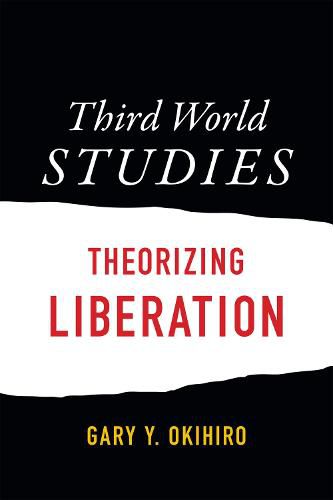Readings Newsletter
Become a Readings Member to make your shopping experience even easier.
Sign in or sign up for free!
You’re not far away from qualifying for FREE standard shipping within Australia
You’ve qualified for FREE standard shipping within Australia
The cart is loading…






In 1968 the Third World Liberation Front at San Francisco State College demanded the creation of a Third World studies program to counter the existing curricula that ignored issues of power-notably, imperialism and oppression. The administration responded by institutionalizing an ethnic studies program; Third World studies was over before it began. Detailing the field’s genesis and premature death, Gary Y. Okihiro presents an intellectual history of ethnic studies and Third World studies and shows where they converged and departed by identifying some of their core ideas, concepts, methods, and theories. In so doing, he establishes the contours of a unified field of study-Third World studies-that pursues a decolonial politics by examining the human condition broadly, especially in regard to oppression, and critically analyzing the locations and articulations of power as manifested in the social formation. Okihiro’s framing of Third World studies moves away from ethnic studies’ liberalism and its U.S.-centrism to emphasize the need for complex thinking and political action in the drive for self-determination.
$9.00 standard shipping within Australia
FREE standard shipping within Australia for orders over $100.00
Express & International shipping calculated at checkout
In 1968 the Third World Liberation Front at San Francisco State College demanded the creation of a Third World studies program to counter the existing curricula that ignored issues of power-notably, imperialism and oppression. The administration responded by institutionalizing an ethnic studies program; Third World studies was over before it began. Detailing the field’s genesis and premature death, Gary Y. Okihiro presents an intellectual history of ethnic studies and Third World studies and shows where they converged and departed by identifying some of their core ideas, concepts, methods, and theories. In so doing, he establishes the contours of a unified field of study-Third World studies-that pursues a decolonial politics by examining the human condition broadly, especially in regard to oppression, and critically analyzing the locations and articulations of power as manifested in the social formation. Okihiro’s framing of Third World studies moves away from ethnic studies’ liberalism and its U.S.-centrism to emphasize the need for complex thinking and political action in the drive for self-determination.